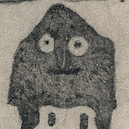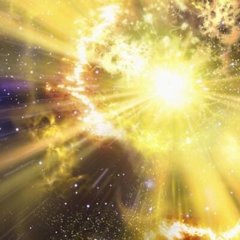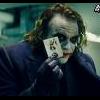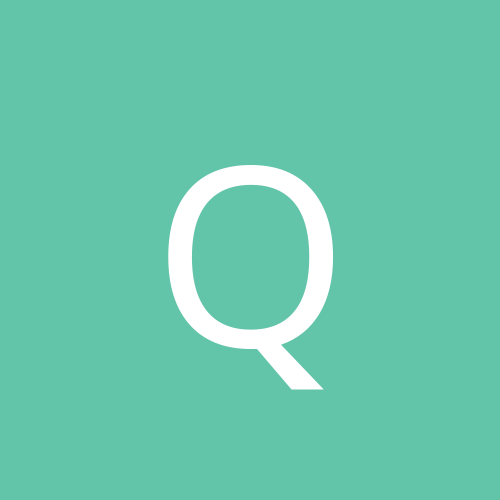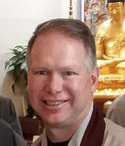-
Content count
11,081 -
Joined
-
Last visited
-
Days Won
234
About steve
-
Rank
Dao Bum
Recent Profile Visitors
33,254 profile views
-
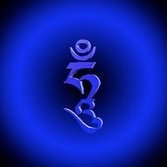
Is 'just sitting' a post-enlightment practice?
steve replied to Vajra Fist's topic in Buddhist Discussion
I would not recommend that you sit and hope that your mind shuts up. There will always be activity arising in a healthy mind. The objective is not to quiet the mind but to see it as it is. I would also not be too concerned about noting the content, per se. The content has little to do with this practice. What is important is noticing when you've become disconnected/distracted from your practice, such as it is, and reconnect. There needs to be a sort of passive vigilance that notices when we are being/have been drawn into thought, feeling, or focused perception. Once we notice, we simply reconnect with the practice, and continue. For me this is a releasing or resting of the mental activity, opening to my authentic experience, whatever that may be in the moment, and allowing it to be as it is without engaging, grasping, or pushing anything away. This is an ongoing process and is one of the more valuable benefits of sitting practice. With time and patience we begin to notice our interruptions sooner and find it easier to release and reconnect. Eventually it occurs with less and less frequency and effort until at some point we find a sense of stability, almost an inertia, in the openness of unfabricated presence. It can be a gradual process but there can also be very profound and abrupt experiences of the heart/mind opening into stillness, silence, and spaciousness. As practice becomes stable on the cushion it needs to be exercised off the cushion in all areas of our lives. When you practice for months and years you will notice an infinite number of variations on the theme when it comes to ways we disconnect and reconnect to our practice. Also an endless number of meditative experiences arise, the "good" experiences generally indicative of the release of a particular obscuration or blockage and the "bad" experiences often a sign that we are ttrying to hard. I was taught, and teach, a very specific recipe for this process as well. We use the body, speech, and mind, each of which has an aspect that is related to the mind's essence, rather than its content - stillness of the body, silence of the speech, and spaciousness of the mind. Also, in the Bön dzogchen tradition, zhiné (meditation with an object) is practiced until some degree of stability and insight into the mind's nature are achieved. Only then do we begin to practice with less tangible objects like stillness, silence, and spaciousness always moving towards untethering. My experience is that most people find it much more accessible to have a target, of sorts, and a tether. With practice and time these are gradually released until we are able to jump in to the deep end and find support and stability. Undoubtedly there are people who need little or no support. That was not the case for me. As always, wiser for whom? We need to know ourselves and be honest with ourselves in order to know what we need. -

Is 'just sitting' a post-enlightment practice?
steve replied to Vajra Fist's topic in Buddhist Discussion
Nowhere in particular, I just sit. 🥴 How does one know when or if they are close? Truth be told you are always close, as close as you are to your self. Nothing can promise success and yet it can occur anytime, anywhere, as a result of anything or nothing at all. So why not just sit? Yes, a viable, simple, and accessible path for anyone but it will only be effective if you are fortunate enough to be karmically suited to the approach. The focus on different practices is understandable as we always tend to look outward as opposed to in, but the most important variable is always the practitioner. We all need different things at different times in our lives. Figuring out what that is can be elusive but I feel a quiet mind and open heart can be a more effective guide to what that is than the inner analyst. Anyone can wake up at any time for any or no reason and no one, not even the greatest master, can tell another what is needed in their practice but for that very reason, just sitting is a suitable practice for anyone, even the greenest of beginners. Arguably, the freshness of “beginner’s mind” could be an advantage for many. For me, the moment of kenshō was completely spontaneous and unexpected and did not occur during formal practice. One of the things that came out of the experience was a realization of the contrived and artificial aspect of all practices and an insight into the true meaning and value of “just sitting.” Over time, the value of practice once again became meaningful to me and there has been a waxing and waning with respect to feeling a “need” for practice over time. Practice simply becomes life and life becomes practice. -

Is the ming men at or below the belly button?
steve replied to Khun Paen's topic in General Discussion
I don't recommend using the belly button as a reference point because that can vary depending on physical build and body habitus. Better to use the kidneys as a reference for locating ming men, at least that is how I was taught. -
forgive yourself now! embrace the judgmental one soft shadows and tears
-
Misunderstandings of the dzogchen and nondual teachings are often related to conflating the characteristics of the natural state with the characteristics of the practitioner. The natural state has no likes or dislikes but people do. We can approach wisdom in our lives but as long as we have a mind and body we are living in samsara and collecting karma and we will have likes and dislikes. I think this quote is potentially misleading, at least in my limited experience and understanding. In receiving and studying dzogchen teachings, I've never encountered the advice to 'reject the distinction between good and bad in the sphere of my own mind' [sic]. Furthermore, we don't generally deal with thoughts in one way and actions in another. What the teachings are saying to me is that distinctions between good and bad exist in the mind and only in the mind. Such distinctions do not exist in the nature of mind which is free of all partiality. We cannot free ourselves of such distinctions through rejection or denial. As practitioners, we are naturally subject to partiality and we need to be honest with ourselves about that. On the dzogchen path, nothing is rejected and all experiences are taken onto the path. When we get a taste of the nature of mind through our practice we can get a sense of what it is like to be free of judgements and distinctions but that is not our ongoing condition with very rare exceptions. To the extent that we are able to allow the activity and reactivity of the mind to liberate spontaneously, we create no karmic traces and experience no distinction between good and bad. For most of us, this is not a continuous flow of self-liberation so we need to deal with the good, the bad, and the ugly in one way or another. With regards to engaging in harmful or negative actions due to a misinterpretation of these teachings it is said that the dzogchen view should be as boundless as the sky and actions should be as fine as tsampa. This means in the state of the enlightened view (that is, the nature of mind) there is no distinction between good and bad but in the actions there is only the direct manifestation of enlightened activity defined and informed by the four immeasurables - joy, compassion, unconditional love, and equanimity.
-
I think Luke’s experience and direction of growth are related to wisdom, in particular the wisdom of equanimity and mirror-like wisdom. This can be a very elusive and challenging idea to the mind and is an area that often leads to frustration and disagreement. During such teachings it’s very common for people to bring up the most extreme examples to test the hypothesis. I think it is helpful to recognize this subject matter as occupying the boundary between the mind which judges and the mind’s nature, which has no argument with whatever arises (mirror-like wisdom). The nature of mind does not discriminate between murderer and saint, it is beyond good and evil such that both are a part of life’s experiences. Having a full realization of these aspects of wisdom is rare and I believe Luke’s comments to be an indication of becoming a bit more familiar with inhabiting this territory.
-
Nothing has changed. Glad you found a way to make it work. As best I can tell the forum settings are optimal, not sure what else I can do to improve the situation. Sorry
-
This subject is close to my heart. How do we value people, or other sentient beings for that matter? Is it based on intelligence, productivity, attractiveness? Is it based on how closely they are related to us or is it more transactional? I share your conclusion that life is innately precious and any system of ranking is arbitrary and more a reflection of the judge than of those being judged.
-
@Gerard Nothing has changed in the forum software. Were you posting links or files saved on your machine? Not all 3rd party hosting sites and file types are compatible with the forum software. If links, please paste them here and tag me. Thanks PS - is it this link you are referring to from the other thread? https://ibb.co/VJW7NLH The host site, ibb.co, is not on the list of sites from which the forum software allows automatic image embedding. That may be the issue and cannot be changed. That said, I was able to post that image as a test and it automatically embedded. Don't know if that has to do with my level of permissions vs yours or not. I suggest you clear your browsing data and try again. Also, be a bit cautious with files hosted at ibb.co, there are reports of embedded malware in some of their hosted files.
-
You should now have access. Enjoy
-

Is enlightenment possible without the transmission from a lineage?
steve replied to idiot_stimpy's topic in General Discussion
If you look at the number of spiritual practitioners in the history of our world and the number of verified enlightened human beings, living or "dead," I think it is equally true to say "the probability of attaining enlightenment WITH the help of an enlightened master is near zero." This might belong in the Unpopular Opinions threads but it seems relevant here - Enlightenment does not exist outside of the mind. It is a wonderful and exciting idea that is easy to conceptualize. It can be great for motivation, for finding security, and for defining our personal metaphysics. There are many of us who have experiences of freedom, clarity, and opening of the heart/mind to varying degrees, and these experiences can be unbelievably profound and transformative, but it is the mind that creates and grasps at a condition or ideal of human or spiritual perfection. While we may point to this or that person, historical or living, and claim they are evidence of our idea of enlightenment, no one can know the level of attainment, or lack thereof, for anyone other than themselves. I don't exclude the possibility that a condition, or the unconditioned, exists that may align with how some of us conceptualize "enlightenment" but I question how useful it is to objectify and grasp at such an idea as an objective or support. In the Bön dzogchen teachings, enlightenment is considered a dissolution of body, speech, and mind into the 5 elemental lights. How useful is it for me to focus on dissolving into light? So far for me, not very. While it is good to have some idea of the big picture relating to my spiritual practice, I find it far more supportive to look at my own personal condition and how that is affected by my choices and practices on a day to day basis. Whatever "enlightenment" may be, I do not believe that anyone or any tradition has the key, has cheat codes, or a monopoly anymore than I believe that any one of the ~ 3,000 religions of the world have had the one precise and correct concept of "god" and how to approach and commune with Her. Consequently, while teachers, teachings, and transmissions may be helpful for many, they are not exclusive, only supportive. If we choose to follow a particular tradition, I do think a personal relationship with someone experienced in the paradigm and methods is better than trying to figure it out on our own through books. We each need to find our own path in this life and I think it is useful to keep an open mind and heart and to begin to trust in the subtle inner knowledge that only comes to light when we are still, quiet, and open enough. -
Here is a study on some commonly used remedies and the bibliography should be useful. It is biased towards Western medical paradigm so take that into consideration. https://www.ncbi.nlm.nih.gov/pmc/articles/PMC7309662/






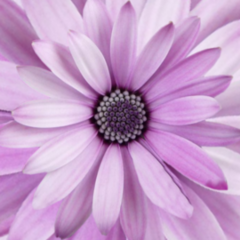


.thumb.jpg.7621d8e4dd2d0d878c4efc817a267564.jpg)


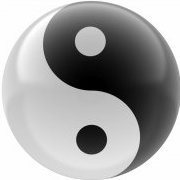
.thumb.jpeg.611f83584012f7d113169af2a4fd9318.jpeg)
